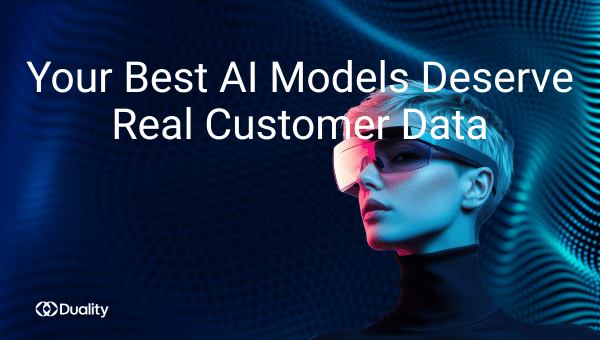
The world is rapidly building some of the most powerful tools humanity has ever created, and doing it at an unprecedented pace. AI systems now diagnose diseases, drive cars, approve loan applications, and even help judges determine criminal sentences. Yet for all this power, we’re essentially writing the rulebook as we go.
As generative AI continues to accelerate, the need for a structured approach to AI implementation grows, one that ensures AI systems and models meet ethical standards, comply with regulations, protect intellectual property (IP), and safeguard privacy.

AI governance functions as the framework that bridges the gap between the technological capabilities of AI and the ethical principles that guide its deployment. It provides the guardrails necessary to ensure AI development stays on track.
AI governance is a dynamic framework of policies, principles, and practices that guide how we build, deploy, and live with artificial intelligence. As these technologies become more integrated into various sectors, from healthcare to finance and law enforcement, it is essential that AI systems align with societal values, legal frameworks, and human rights.
An AI governance framework serves to guide the responsible and ethical advancement of AI technologies, fostering trust and accountability at every step. An effective AI governance framework doesn’t just prevent disasters, it enables innovation by creating clear pathways for responsible development.
Every strong building needs a solid foundation. For AI governance, that foundation consists of nine interconnected principles that work together to guide the ethical development and application of AI technologies.

Imagine a doctor prescribing treatment but unable to explain why. Unsettling, right? This is akin to AI without explainability. The principle of explainability ensures that AI models can clearly articulate how and why they make specific decisions. This transparency is crucial not only for improving and debugging models but also for building trust with users and regulatory bodies. It’s not enough for AI to be correct; we need to understand why it’s correct.
Accountability means that there is a clear attribution of responsibility for the actions taken by AI systems. If an AI system causes harm or errors, there must be a direct line of responsibility, including the ability to trace the source of mistakes. This ensures that issues are addressed, biases are mitigated, and ethical duties are upheld. This is especially important in areas like financial services, where AI models are increasingly used for decision-making processes that can affect people’s livelihoods.
AI systems must be rigorously designed and tested to avoid posing safety risks to users or the environment. These AI systems should operate within well-defined boundaries to ensure they don’t make harmful decisions. AI safety goes beyond technological robustness; it also considers the broader socio-ethical consequences of deploying AI in real-world scenarios.
Given AI’s reliance on vast amounts of data, it is especially vulnerable to privacy breaches and cyberattacks. The principle of security ensures AI systems are safeguarded from unauthorized access and cyber threats. Protective measures must be implemented to secure both the data and models, especially when dealing with sensitive information such as financial or health data.
AI processes must be transparent and open. This means providing clear documentation on how algorithms function, how data is processed, and the actions AI takes. Transparency fosters trust, enabling external audits to ensure regulatory compliance. No hidden agendas, no secret algorithms. Just clear, honest communication about what AI is doing and why.
AI trained on biased data perpetuates bias at scale. This principle ensures AI systems treat all people equitably, actively working to identify and eliminate discrimination. This includes addressing potential biases in the training data and evaluating models for fairness across diverse demographic groups.
AI systems must be reproducible, meaning their results should be consistent and verifiable. This principle upholds scientific integrity, enabling researchers, developers, and regulatory bodies to validate AI claims. Reproducibility ensures that AI technologies are reliable, particularly in high-stakes environments, and provides a foundation for further innovation. If an AI claims 99% accuracy in detecting cancer, other researchers should be able to confirm those results.
AI systems and their regulatory frameworks must be resilient to unexpected challenges and manipulations. This principle ensures AI remains functional even under extreme or unforeseen conditions, maintaining reliability across various environments. It’s about making sure AI models continue to perform effectively, no matter the scenario.
Data governance refers to the ethical management of data throughout its lifecycle. This principle ensures that data is collected, used, and protected responsibly. It addresses critical questions: What data are we using? Where did it come from? Who has access to it? How long do we keep it?
Together, these AI governance practices form a framework, ensuring that AI systems are developed and deployed in a manner that is ethical, responsible, and aligned with societal values and norms.
An AI governance framework is essential for aligning AI systems with ethical standards and societal norms. Here’s why:

The trustworthiness of AI systems depends on how well they adhere to ethical guidelines. By focusing on ethical considerations such as fairness, transparency, and accountability, AI systems can earn public trust, which is critical for widespread adoption. Responsible AI is not just about meeting regulatory requirements; it is also about making sure that AI technologies work for the benefit of all.
AI systems rely heavily on data, and managing this data responsibly is central to AI governance. By incorporating strict data quality and protection measures, organizations can make sure that sensitive information is not misused. This is especially important when dealing with personally identifiable information (PII), which is subject to legal frameworks. AI systems must follow these regulations to avoid fines and reputational damage.
Effective AI governance makes sure that AI models operate in ways that are both ethical and efficient. By adhering to principles of fairness, explainability, and accountability, organizations can use AI to make better, data-driven decisions that align with societal values and ethical principles. In industries like healthcare, finance, and transportation, where AI-driven decisions have significant consequences, governance ensures these systems are not only effective but also just, transparent, and aligned with public interests.
With the growing need for ethical, transparent, and accountable AI, effective governance frameworks will be critical in ensuring AI initiatives are developed in alignment with societal values and legal standards.
By 2030, the global AI market is projected to reach over $300 billion, with AI applications permeating every aspect of society. With this rapid expansion, the need for robust AI governance frameworks becomes even more critical. As AI continues to integrate into sectors like financial services, education, and healthcare, organizations must implement risk-based approaches to manage the potential risks of AI implementation while addressing privacy concerns.
Duality Tech’s AI solution offers a suite of privacy-enhancing technologies (PETs) to enable secure data collaboration on AI applications. Our solution safeguards sensitive data, model IP, and input data from everyone but the owners while facilitating secure, trustworthy AI collaboration.
Through strategic partnerships with large enterprises such as AWS, DARPA, Intel, Google, Oracle, IBM, and the World Economic Forum (WEF), Duality continues to push the boundaries of AI governance and secure data collaboration.
Contact us to learn more about our secure data collaboration solutions and how we can help your organization harness the power of AI tools and models while ensuring data privacy, security, and compliance. Together, let’s drive responsible AI development forward.


